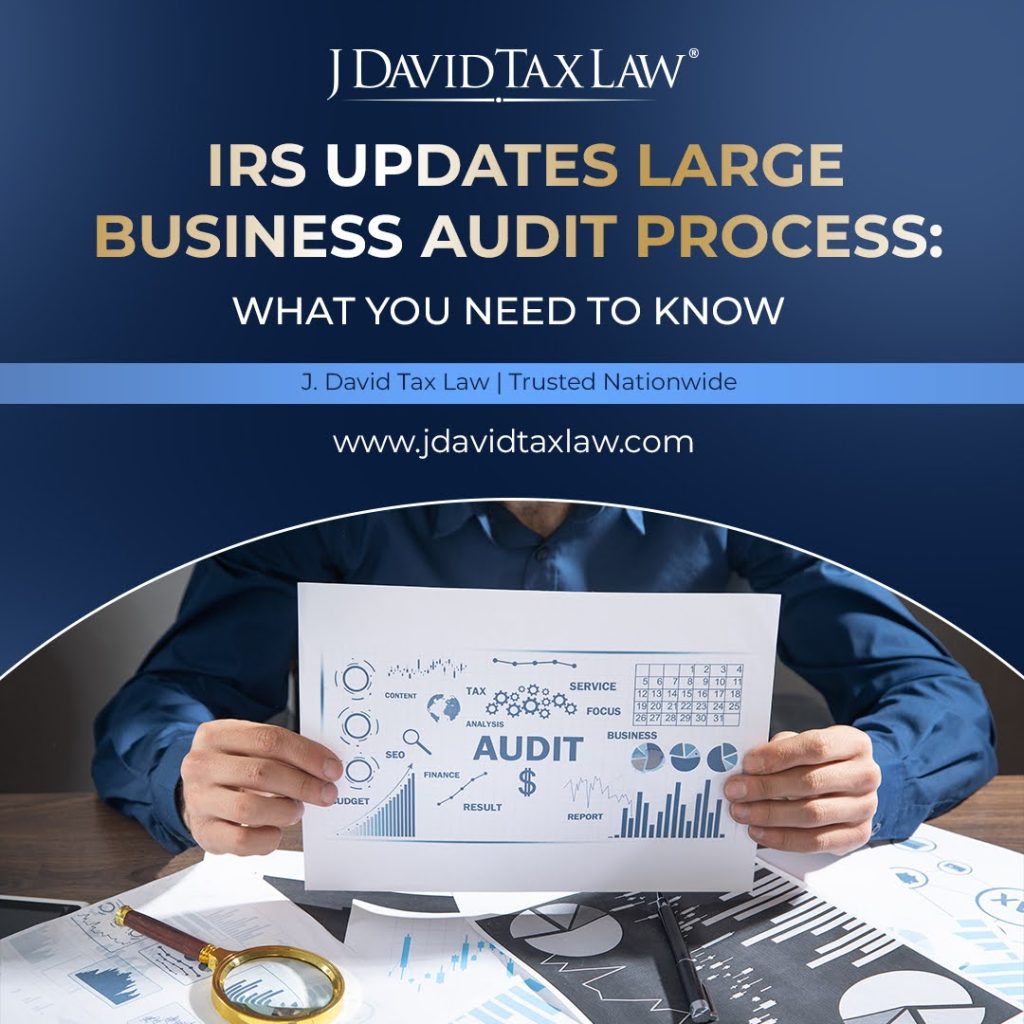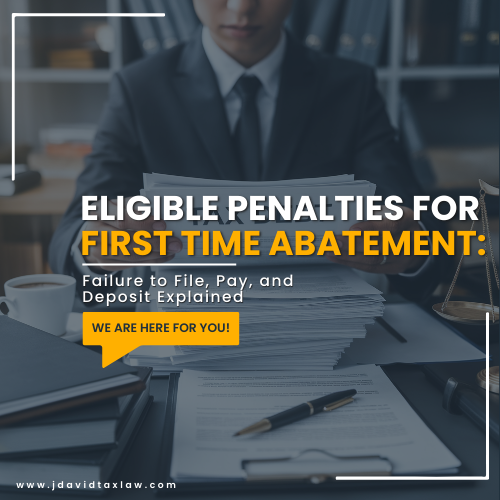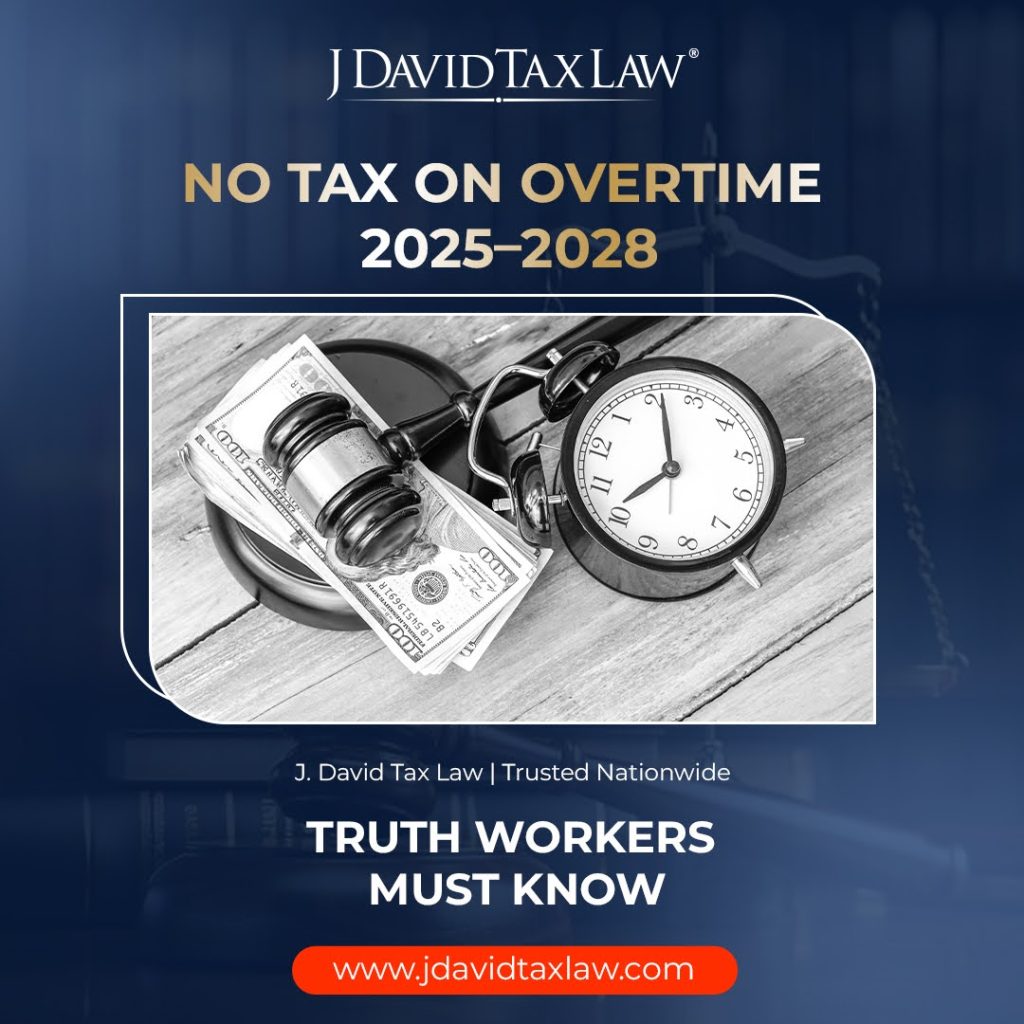Table of Contents
Every year, approximately 1 in 500 Americans find themselves subject to the rigorous scrutiny of an IRS tax audit. This seemingly small statistic represents a number of individuals and businesses justifying the accuracy of their tax submissions.
The complexity and potential consequences of these audits make them a critical issue for those involved. It is in these high-pressure financial situations that the value of a reputable and skilled tax law firm becomes most apparent.
J. David Tax Law, renowned for its high success in tax audit resolution disputes, provides the necessary guidance and support to navigate these challenging waters. The firm has built its reputation of offering tax debt relief and resolution to countless taxpayers across the nation.
Read on as we discuss the resolution strategies J. David Tax Law follows to manage and resolve IRS audits efficiently.
Understanding Tax Audits
A tax audit is an examination conducted by the Internal Revenue Service (IRS) or other tax authorities. This process is crucial to verify a taxpayer’s financial information and tax return filings are accurate and comply with tax laws.
During a tax audit, the IRS reviews a taxpayer’s records to ensure that income, expenses, and credits are reported accurately. This review is often conducted via mail (correspondence audit), in an IRS office (office audit), or in a taxpayer’s home, place of business, or accountant’s office (field audit).
Note: The scope and depth of an audit can vary significantly based on the complexity of the issues and the amount of information needed.
Common Triggers for an IRS Tax Audit
While most IRS audits are random, certain actions can increase the likelihood of drawing scrutiny from tax authorities.
Understanding these triggers can help taxpayers take preventative measures and reduce the chances of being audited. The IRS uses several criteria to select tax returns for audits, and knowing what these criteria are can be extremely beneficial. Here are some of the most common triggers:
Audits can occur if there’s a mismatch between reported income and data from third parties like employers or banks.
Large or unusual deductions compared to income, such as charitable donations or large business expenses, can trigger an audit.
Higher-income earners may face more audits due to their complex financial records and transactions.
Businesses that deal heavily in cash, like restaurants or retail shops, are often more prone to audits due to the ease of underreporting income.
Recurring losses reported by businesses, particularly if they appear non-profit-driven, may lead to an audit.
This deduction is scrutinized for compliance with strict criteria regarding the regular and exclusive use of the home for business.
Those who have been audited before and had adjustments made may be more likely to be audited again.
The implications of a tax audit can vary widely depending on the findings of the IRS examiner. In most cases, it could lead to tax penalties, interest, or worse criminal prosecution.
However, not all audits necessarily end negatively. Some may conclude with no change to the tax return or may even result in a refund if an overpayment is discovered.
3 Main J. David Tax Law IRS Tax Audit Solutions
Effective resolution of IRS audits is crucial to mitigate financial liabilities and to ensure compliance with tax laws and financial stability.
J. David Tax Law understands the critical nature of these issues and offers a robust suite of options to manage and resolve audits efficiently. These options are designed to address the unique circumstances of each client’s case.
The resolution employed by J. David Tax Law leverages the full spectrum of legal avenues available to contest and negotiate IRS findings. This approach is essential to allow taxpayers to challenge the IRS’s decisions through several procedural stages.
Here are three main options available:
Administrative Appeals
One of the primary recourse methods is through administrative appeals. This process is a critical component of tax resolution as it provides a formal avenue to contest audit findings without the need to go to court.
So if a taxpayer disagrees with the IRS’s conclusions after an audit, J. David Tax Law can assist in challenging the findings through administrative appeals. This process involves drafting a protest letter outlining the discrepancies and issues with the IRS’s findings. This provides a detailed factual and legal basis for the appeal and including supporting documentation and legal precedents.
Once the protest letter is submitted, a request for an appeals conference can be made. This is a critical stage where negotiations take place. J. David Tax Law represents their clients during these conferences and negotiates with the IRS appeals officer. The objective is to resolve the dispute amicably without proceeding to court and avoid additional penalties.
Negotiation
Negotiation is another pivotal aspect of J. David Tax Law’s strategy in resolving tax audits. This focuses on securing agreements with the IRS that are tailored to the financial circumstances and capabilities of their clients. resolutions
The tax law firm’s experienced tax attorneys explore all available options to settle the tax liabilities on terms favorable to the client. Here are the two main tax audit resolutions for negotiating feasible payment terms:
Offer in Compromise: This allows taxpayers to settle their tax debt issues for less than the full amount owed if paying the full debt would cause financial hardship. The tax lawyer negotiates with the IRS to reach an acceptable compromise based on an assessment of the client’s income, expenses, and asset equity.
Installment Agreements: For clients who cannot pay their taxes in full, the firm negotiates installment agreements that allow taxes to be paid over time. This approach considers the client’s ability to pay monthly and seeks the most affordable payment plans.
Litigation
Litigation in complex tax issues is a critical component of J. David Tax Law’s tax audit complaints resolution. It provides a formal platform for resolving disputes that could not be settled through less confrontational means.
They can file a petition in the U.S. Tax Court before the tax assessment becomes final. This option does not require the taxpayer to pay the disputed tax amount upfront.
If the tax has already been paid and the IRS has denied a refund, J. David Tax Law might pursue litigation in a Federal District Court to contest the IRS’s decisions.
How Long Does Tax Audit Resolution Take?
The time it takes for J. David Tax Law to resolve a tax audit can vary significantly based on the specifics of each case.
Typically, simpler audits might be resolved within a few months, especially if they involve straightforward issues and clear documentation. However, more complex cases, particularly those that require negotiating with the IRS or proceeding through administrative appeals, could take anywhere from six months to a year or more.
In cases where litigation is necessary, the process can extend even further. It can potentially last several years depending on the complexity of the issues and the court’s schedule.
Conclusion
The intricate nature of tax law demands expertise and meticulous attention to complaint detail, qualities that J. David Tax Law embodies.
By entrusting your tax audit concerns to their capable hands, you benefit from their comprehensive knowledge and strategic approach to tax audit resolution. This level of expertise is crucial for navigating the complexities of the tax system and securing the best possible outcome in any audit scenario.
If you need further assistance with other tax debt resolution matters, J. David Tax Law also specialize in handling complaints for tax liens, wage garnishments, tax levies, penalty abatements, or payroll tax representation.
Ready to take control of your tax audit situation? Contact tax professionals from J. David Tax Law today to schedule a consultation.




















